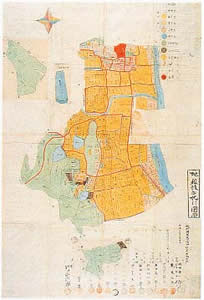- Home
- What is a Certified Public Tax Accountant?
- Origin of the System
|
What is a Certified Public Tax Accountant?Origin of the System The certified public
tax accountants’ system dates back to 1897.
Japan's taxation system evolved based on land tax in the Meiji era (1868-1911), and continued through the Taisho era (1912-25) until early Showa (1926-88).During those years, other taxes – personal and corporate income, inheritance, sales, etc. – were successively introduced. With tax matters and disposal increasingly complex, the need for a system to help merchants and manufacturers pay their taxes became obvious. The first attempt to establish one came in 1897 and was called the “National Tax Work Association.” In 1906 it was changed to the “Tax Proxy” system.
*the Shoup Recommendation: A report to the Japanese government by the U.S. Shoup Mission headed by Dr. Carl S. Shoup. The mission, that visited Japan to study its taxation system, made several recommendations for reforming the nation’s method of taxation. (Pictures from the website of the National Tax College) |
 Some
dozen of years later, aimed at efficient tax administration management
under pressure of war, this system was reorganized as the “Tax
Practitioners” system in 1942. It marked the beginning of the
current certified public tax accountants system, and the date
of its establishment, February 23, became the anniversary of the
system.
Some
dozen of years later, aimed at efficient tax administration management
under pressure of war, this system was reorganized as the “Tax
Practitioners” system in 1942. It marked the beginning of the
current certified public tax accountants system, and the date
of its establishment, February 23, became the anniversary of the
system. The
end of the World War II hostilities, in 1945, proved to be a major
turning point for Japan. With the establishment of the new Constitution
declaring “Sovereignty rests with the people”, Japan underwent
a drastic change in its political, educational and cultural systems,
taxation being no exception, thereby enabling it to join the community
of democratic nations. The taxation reform was symbolized by replacing
the official assessment system with the diametrically opposite
self assessment system, premised on the so-called Shoup Recommendation*.
Our contemporary certified public tax accountants system was established
in 1951 as a body of specialized professionals to support the
self-assessment scheme.
The
end of the World War II hostilities, in 1945, proved to be a major
turning point for Japan. With the establishment of the new Constitution
declaring “Sovereignty rests with the people”, Japan underwent
a drastic change in its political, educational and cultural systems,
taxation being no exception, thereby enabling it to join the community
of democratic nations. The taxation reform was symbolized by replacing
the official assessment system with the diametrically opposite
self assessment system, premised on the so-called Shoup Recommendation*.
Our contemporary certified public tax accountants system was established
in 1951 as a body of specialized professionals to support the
self-assessment scheme.